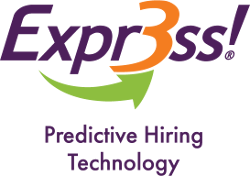 “What in earth has “Fundamental Attribution Error” got to do with hiring the wrong people?”, I hear you ask. Well, I didn’t actually hear you but I’m glad you asked anyway.
“What in earth has “Fundamental Attribution Error” got to do with hiring the wrong people?”, I hear you ask. Well, I didn’t actually hear you but I’m glad you asked anyway.
Oh!… you didn’t ask? Never mind, you must be curious about it by now: you’re quite a curious person aren’t you!
And there it is!… that’s it! … fundamental attribution error… I just did it… and you helped. Well done! You obviously have a lively and enquiring mind. Oh! shoot, there it is again!
It’s said that if you claim to remember the 60’s then you weren’t there. But two US researchers who were there asked people to read student essays about Cuba. Now, we’re talking Cuba in the 60’s here… JFK, Cuban Missile Crisis, Bay of Pigs, the World on the brink of nuclear armageddon. No? Well, the International situation was desperate, as usual as Tom Robbins would say. So people had pretty strong opinions.
The readers were told that the student writers of the essays had been allocated one stance or the other (either pro- or anti-Cuba), regardless of their personal opinions. In other words they had to write either for or against Cuba, no matter what their personal opinion.
The readers rated, not the essays but their opinion about whether the student author was pro-Cuba or anti. So, knowing that each student had been directed to write either for or against, at random what do you think happened?
You guessed! Readers consistently and significantly rated students allocated pro-essays as having positive, personal bias towards Cuba (and vice versa), despite knowing that the choice of essay was totally random and not their own.
Voilà! Fundamental Attribution Error… deciding what someone is based on an inadequate sample of what they did which, it turns out research shows, was most probably much more related to the surrounding circumstances than who they are!
So it’s another example of ASS | U | ME – we assume that we know who someone is based on a behavioural snapshot. And it’s inescapable: you can’t avoid it. You can know about it, try to combat it, but you can’t escape it. It’s built in.
Individual survival depends on making arbitrary judgments about someone based on what we know right now. Are they a threat? Should I fight or take flight? Your ancestors made those decisions constantly and on balance they must have got it right, or you wouldn’t be here.
The downside?…
“We trust people we ought not to, we avoid people who really are perfectly nice, we hire people who are not all that competent – all because we fail to recognise situational forces.” 1
This explains why interviews are such poor predictors of on-the-job success. And it explains why most people find that so hard to believe, despite the mountains of evidence that it is so.
But you’d get that, wouldn’t you: I can see you’re an intelligent and perspicacious reader. Why, you’re reading this here aren’t you – that proves it!
Thanks for dropping by…
1. Richard Nesbitt: “The mistake we all make…”
http://www.theguardian.com/science/2015/aug/09/world-in-context-mindware-tools-for-sharp-thinking
